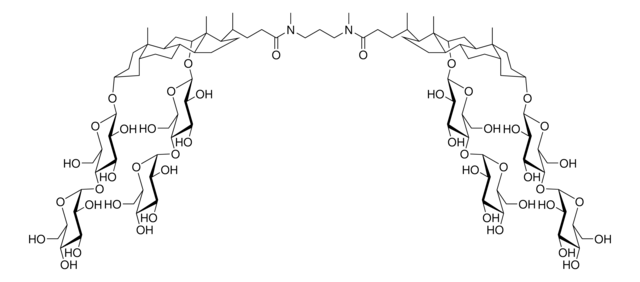850536O
Avanti
8.8 MAG
Avanti Research™ - A Croda Brand 850536O
Synonym(e):
1-(8Z-hexadecenoyl)-rac-glycerol
About This Item
Empfohlene Produkte
Assay
>99% (TLC)
Form
oil
Mol-Gew.
328.49 g/mol
Verpackung
pkg of 10 × 0.1 g (with screw cap (850536O-1g))
pkg of 1 × 25 mg (with screw cap (850536O-25mg))
Hersteller/Markenname
Avanti Research™ - A Croda Brand 850536O
Methode(n)
protein sequencing: suitable
Versandbedingung
dry ice
Lagertemp.
−20°C
SMILES String
OCC(O)COC(CCCCCC/C=C\CCCCCCC)=O
Allgemeine Beschreibung
Anwendung
Biochem./physiol. Wirkung
Verpackung
Rechtliche Hinweise
Lagerklassenschlüssel
11 - Combustible Solids
WGK
WGK 3
Flammpunkt (°F)
No data available
Flammpunkt (°C)
No data available
Analysenzertifikate (COA)
Suchen Sie nach Analysenzertifikate (COA), indem Sie die Lot-/Chargennummer des Produkts eingeben. Lot- und Chargennummern sind auf dem Produktetikett hinter den Wörtern ‘Lot’ oder ‘Batch’ (Lot oder Charge) zu finden.
Besitzen Sie dieses Produkt bereits?
In der Dokumentenbibliothek finden Sie die Dokumentation zu den Produkten, die Sie kürzlich erworben haben.
Unser Team von Wissenschaftlern verfügt über Erfahrung in allen Forschungsbereichen einschließlich Life Science, Materialwissenschaften, chemischer Synthese, Chromatographie, Analytik und vielen mehr..
Setzen Sie sich mit dem technischen Dienst in Verbindung.








